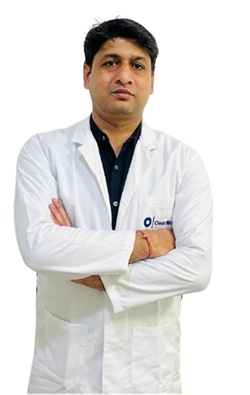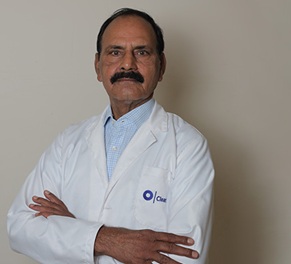Proctology - What is It, Purpose, Surgery Procedure, Side Effects

Quick Summary
- Proctologists are surgeons who specialize in diagnosing and treating rectum, anus, and gastrointestinal diseases.
- The term "proctologist" is a little out of date. These days, "colorectal surgeon" or "colon and rectal surgeon" is the recommended phrase.
- Proctology is a colorectal exam that enables the finding of answers regarding the normal functioning of the colonic system.
Proctologists are surgeons who specialise in diagnosing and treating rectum, anus, and gastrointestinal diseases.
However, the term "proctologist" is a little out of date. These days, "colorectal surgeon" or "colon and rectal surgeon" is the recommended phrase.
Proctology is a colorectal exam that enables the finding of answers regarding the normal functioning of the colonic system. A healthy colon system is crucial for a healthy digestive system, so determining the source and severity of any abnormalities that may be present is critical. When a general practitioner cannot find solutions to colorectal-related problems, the patient needs to visit a proctologist.
Symptoms
- Blood or other bodily fluids are leaking from the anus
- Itching or burning in the anal region
- Incontinence of the bowels
- Anal warts, lumps, or a foreign body feeling
- Anal or rectal discomfort


What are the most common procedures included in proctology?
Colorectal surgeons are well-versed in a wide range of diagnostic and surgical treatments. The following are some of their most common procedures:
- Anoscopy
- Colonoscopy
- Exams of the rectal cavity with digital technology
- Ultrasound of the endorectal cavity
- Proctoscopy
- Sigmoidoscopy
Colorectal surgeons are skilled in several procedures, including laparoscopy and robotic surgery. They may also be able to provide non-surgical therapy for some conditions.
Colorectal disease: diagnosis and treatment
Your proctologist will ask you questions about your symptoms and do a physical examination: After they've narrowed down the list of possible health issues, they might:
- Ask you for Lab tests.
- Suggest some dietary adjustments that can help you feel better in the near term.
- Suggest you over-the-counter or prescription drugs
- Perform surgery to repair the damage
If your disease worsens, your proctologist may recommend treatment to learn more about it and cure the problems it has caused. The following are some of the most common colorectal procedures:
- Colonoscopy: Your doctor examines your lower digestive system with a tiny light and a camera. They look for damage indications and evidence that your health interferes with your physiological systems.
- Repairing a bowel blockage: If a blockage does not clear up on its own, surgery may be required. A blockage can entirely block a part of the intestine and this may stop all the gas, liquid and solid to pass through the digestive system. It causes severe cramps and vomiting.
- Haemorrhoid: Some haemorrhoids go away on their own, but others linger and negatively impact your quality of life. To avoid future damage, large, painful haemorrhoids can be easily removed.
When should you consult a proctologist?
If you are experiencing any of the following symptoms, you should get medical advice.
- Itching
- Burning
- Unpleasant discharge from the anus
- Anal or rectal discomfort
- Faecal incontinence, anal warts, and pimples
A colorectal surgeon must have a thorough understanding of all of your symptoms. If they don't know about all of your symptoms, they'll have a harder time diagnosing you and determining which treatments you need.
Conclusion
Having problems with your rectum, anus, or gastrointestinal tract can be sensitive. This is why you must be aware of the symptoms and take appropriate action. The impact of these diseases might be severe; therefore, early detection and treatment are beneficial. It is advised to communicate openly with your colorectal surgeon to provide an appropriate and timely treatment. It will also assist you in avoiding future medical issues.
Frequently Asked Questions
What conditions do they deal with?
Colorectal surgeons specialise in the treatment of illnesses of the intestine. The colon, rectum, anal canal, and perianal region make up this tract. Common problems associated with the intestine include irritable bowel syndrome (IBS), inflammatory bowel disease, constipation, haemorrhoids, anal fissures, abscess, colitis, polyps, rectal prolapse and colon cancer.
An article published in ‘World Journal of Gastroenterology’ suggests the treatment of sexually transmitted infections (STIs) by colorectal surgeons, including:
- Genital Herpes
- Chlamydia
- Gonorrhoea
- Syphilis
Last Updated on: 29 November 2022
Reviewer

Dr. Aman Priya Khanna
MBBS, DNB General Surgery, FMAS, FIAGES, FALS Bariatric, MNAMS General Surgery
13 Years Experience
Dr Aman Priya Khanna is a highly experienced and National Board–Certified Laparoscopic, GI, and Bariatric Surgeon with over 13 years of clinical expertise.
He is widely regarded as one of the best bariatric surgeons in Ahmedabad, ...View More
Author

Rajath R Prabhu
MSc. Clinical Research I PG Diploma in Public Health Services Management
3 Years Experience
His work in medical content writing and proofreading is noteworthy. He has also contributed immensely to public health research and has authored four scientific manuscripts in international journals. He was assoc...View More
Expert Doctors (10)
NABH Accredited Hospitals (5)
Latest Health Articles
Related Treatments




























 Open In App
Open In App